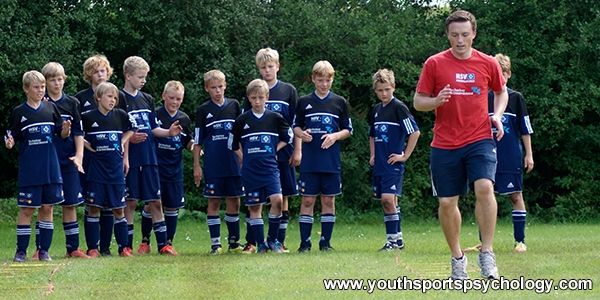
3 Ways Teen Athletes Lose Confidence
Sports kids can work on boosting their confidence even when they’re not playing.
Help them focus on identifying and overcoming common confidence busters.
Here are the top three:
- Holding strict expectations.
- Feeling self-doubt.
- Preparing poorly or lacking a game plan.
Let’s take a look at these issues. Help kids identify whether they fall victim to these confidence busters, and help them think of ways to overcome them.
When kids hold strict expectations, they expect too much of their performance, and generally get frustrated when they don’t meet their expectations. For example, they might expect to shoot four three-pointers in basketball. Instead, they need to focus on mini-goals such as improving their defense, or taking good shots. They should avoid focusing on the score, stats or win.
The second issue-self-doubt–can also undermine kids’ performance and confidence. Kids will tell themselves they aren’t strong enough to play against a big player. They’ll tell themselves they’re too small to play defense. They’ll think they’re too skinny to run fast, or too slow to defend a quick player.
These feelings can become a self-fulfilling prophecy; if they go into a game doubting their abilities, it’s likely they won’t perform well–or with confidence. Instead of immersing themselves in self-doubt, they need to focus on what they can do well. Perhaps they’re great team players. Maybe they’re strong on offense. Maybe they’re great communicators. They need to focus on these strengths.
Preparing poorly or lacking a game plan is another mental game no-no. Kids need to come to games or performances with proper equipment. They need to eat well and sleep well before a game. They need to let go of distractions such as homework, tests, recitals or arguments with friends. And they need to have a game plan. What will they focus on doing well during the game? What mini-goals will they concentrate on achieving? Help kids prepare a list of things they can do to prepare well before a game.
Be sure to look over these top confidence busters with your sports kids. Help them identify when they are susceptible to these challenges. Then help them work on ideas for overcoming these issues.
These are just a few mental game busters. When kids are aware of what can undermine their confidence, and have a plan for avoiding such challenges, they’re likely to feel more confident and enjoy sports more.
Related Articles on Youth Sports:
- How This Sport Builds Confidence and Focus in Kids
- How Social Media Hurts Sports Kids’ Confidence
- Addressing Anxiety, Mistakes and Low Confidence in Youth Sports
*Subscribe to The Sports Psychology Podcast on iTunes
*Subscribe to The Sports Psychology Podcast on Spotify
The Composed Sports Kid

“The Composed Sports Kid” audio and workbook digital download program for young athletes and their parents or coach helps kids cope with frustration and anger in sports. Help your sports kids learn how to manage expectations and let go of mistakes so they can keep their head in the game.
The Composed Sports Kid system is really two programs in one–one program to train parents and coaches how to help their kids practice composure, and one program that teaches young athletes–ages 6 to 13–how to improve composure, let go of mistakes quickly, have more self-acceptance, and thus enjoy sports more!
